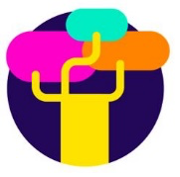By Solomon Ogara, Dean, School of Informatics and Innovative Systems, Jaramogi Oginga Odinga University of Science and Technology (JOOUST), Kenya
Transforming Climate Innovation Ecosystems through Inclusive Transdisciplinarity (TransCIIT) project
We at Jaramogi Oginga Odinga University of Science and Technology (JOOUST) are excited to have been selected to pilot this noble project on how to implement a matchmaking service between the various and evolving business needs of young climate entrepreneurs and the specialist skills of master’s students through the Transforming Climate Innovation Ecosystems through Inclusive Transdisciplinarity (TransCIIT) project. Indeed, the partnership between the young climate entrepreneurs and university students is instrumental to advancing research and knowledge and imparting skills among the workforce in these businesses. This collaboration is certainly a catalyst to innovation and growth in climate innovation ecosystems. Universities are known to contribute to the theory while the industry is constrained by profit. As a result, universities and the industry run parallel to each other. Therefore, creating partnership between the two has the potential to contribute to the betterment of both the industry and universities.
TransCIIT project provides an opportunity of the much needed collaboration between universities and industry. This project seeks to pilot a service in Kenya that matches the needs of climate entrepreneurs with the skills of master’s students, thereby exploring how to develop and strengthen university-industry linkage and contribute to building innovation systems that can nurture transformative change. The project is implementing a tangible response to the need for understanding what role universities could play in establishing strong relations in the climate innovation ecosystem (CIE).
TransCIIT brought together eight entrepreneurs with business focus ranging from packaging, production of organic fertilizer, sustainable waste management, and many more. Jaramogi Oginga Odinga University of Science and Technology (JOOUST) in Kenya is privileged to have been selected to pilot this program. In this project, entrepreneurs identify their business needs which is shared with masters students from different disciplines but with specific expertise that match the business need of the entrepreneurs. Among the business needs identified by the entrepreneurs were customer mapping, branding, drawing strategic marketing plan, providing technical assistance and capacity development, developing business models, web marketing and digital advertising.
We adopted a transdisciplinary approach and inclusivity in the selection of master students at JOOUST. Recruitment of masters students in the project was done competitively and with due consideration of gender and persons with disability. This was an open call with information shared widely with the respective heads of different departments in different schools and on the social media platforms. Deans of four schools responded with names of students who met the requirements. Students from the following schools submitted their information to the JOOUST representative: School of Informatics and Innovative Systems, School of Business and Economics, School of Biological, Physical, Mathematics and Actuarial Sciences and School of Agricultural and Food Sciences. TransCIIT organized for several virtual meetings to bring together the entrepreneurs, students, and the team comprising of members from African Centre for Technology Studies (ACTS), Kenya Climate Innovation Center (KCIC), University of Johannesburg (UJ), and the Science Policy Research Unit (SPRU) at the University of Sussex in the UK.
Despite the challenges of conducting online matchmaking event the team developed strategy that worked so well. The online matchmaking event began with an introduction of the team members, entrepreneurs, and the students present. The activity was broken into two sessions. During session 1, eight breakout rooms were organized and designated by business name. Each entrepreneur was joined to the room with their business name and the students were added to each room according to the pre-matched list. Meanwhile, the TransCIIT team were on standby to provide assistance when needed. During session 2, the students whose expertise matched the needs of the entrepreneurs were allowed to continue their conversations with their matched entrepreneur. However, the students who did not have a match were swapped to another room to look for potential matches as the TransCIIT team provided assistance when needed. At the end of the session all the eight students found a potential match among the entrepreneurs.
The next phase required the students and the entrepreneurs to develop a work plan to be submitted to one of the TransCIIT team members for close monitoring of the matched project’s progress. This was done in order to ensure that the stated business needs of the entrepreneurs and the opportunity for each master’s student were met. The matchmaking event was indeed successful with eight masters students from different disciplines and gender finding a match with different entrepreneurs.
 |
 |

